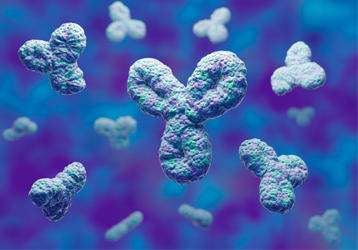In Vitro Glycoengineering – Suitability For BioPharma Manufacturing
By Sebastian Malik, Marco Thomann, Pharma Technical Development Penzberg; Roche Diagnostics GmbH; Penzberg, Germany

The importance of Fc glycosylation of mAbs with regard to biological activity is widely discussed and has been investigated in numerous studies. It is known that different glycan species contribute differently to the biological activity of therapeutic proteins. However, even if a certain glycan variant is known to have a positive impact on biological activity, it might not be easy to consistently produce such a glycosylation pattern. Cell line engineering or bioprocess optimization can enable increased glycosylation homogeneity or at least partially achieve a certain glycan pattern. However, these activities are time-consuming and might compromise other key parameters, such as antibody yield. In addition, it is not economical to produce mAbs with a certain glycan pattern in analytical amounts using such tedious approaches. This problem can now be solved using in vitro glycoengineering (IVGE).
In this assessment of the in vitro glycoengineering technology we determine is it is suitable for the development, manufacturing, and analysis of therapeutic proteins. The assessment was conducted by considering enzyme activity, implementation into the manufacturing process, enzyme versatility and growth in scale and quality during drug development.
Get unlimited access to:
Enter your credentials below to log in. Not yet a member of Bioprocess Online? Subscribe today.
